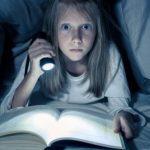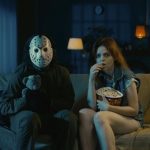 Our World
Our World  Our World
Our World  Crime
Crime 10 Dark Details of the “Bodies in the Barrels” Murders
 Animals
Animals The Animal Kingdom’s 10 Greatest Dance Moves
 Movies and TV
Movies and TV 10 Box Office Bombs That We Should Have Predicted in 2025
 History
History 10 Extreme Laws That Tried to Engineer Society
 History
History 10 “Modern” Problems with Surprising Historical Analogs
 Health
Health 10 Everyday Activities That Secretly Alter Consciousness
 History
History Top 10 Historical Disasters Caused by Someone Calling in Sick
 Animals
Animals 10 New Shark Secrets That Recently Dropped
 Movies and TV
Movies and TV 10 Forgotten Realities of Early Live Television Broadcasts
 Our World
Our World 10 Places with Geological Features That Shouldn’t Exist
 Crime
Crime 10 Dark Details of the “Bodies in the Barrels” Murders
 Animals
Animals The Animal Kingdom’s 10 Greatest Dance Moves
Who's Behind Listverse?

Jamie Frater
Head Editor
Jamie founded Listverse due to an insatiable desire to share fascinating, obscure, and bizarre facts. He has been a guest speaker on numerous national radio and television stations and is a five time published author.
More About Us Movies and TV
Movies and TV 10 Box Office Bombs That We Should Have Predicted in 2025
 History
History 10 Extreme Laws That Tried to Engineer Society
 History
History 10 “Modern” Problems with Surprising Historical Analogs
 Health
Health 10 Everyday Activities That Secretly Alter Consciousness
 History
History Top 10 Historical Disasters Caused by Someone Calling in Sick
 Animals
Animals 10 New Shark Secrets That Recently Dropped
 Movies and TV
Movies and TV 10 Forgotten Realities of Early Live Television Broadcasts
10 Animated TV Shows With Surprisingly Dark Origin Stories
Ever notice how some of your favorite cartoons have a seriously twisted side beneath those bright colors and catchy theme songs? Turns out, many beloved animated shows actually began with some pretty dark concepts. From dead children to psychological trauma, these seemingly innocent cartoons pack some heavy emotional punches when you look beyond the surface. Let’s dive into ten animated series that came from some unexpectedly grim places.
Related: 10 Real-Life Cartoon-Worthy Criminals
10Casper the Friendly Ghost
Poor Casper has perhaps one of the most heartbreaking backstories in animation history. Unlike many cartoon characters with fuzzy origins, Casper’s story is explicitly tragic. He’s literally a child who died from pneumonia at just twelve years old after playing outside in the cold. The 1995 movie took this sad tale even further, showing how his grieving dad became obsessed with building a machine to bring his son back from the afterlife. The whole premise is a dead kid wandering around looking for friends because he’s too nice to scare people. Talk about starting off on a depressing note.
9The Owl House
Disney’s The Owl House kicks off like your typical magical adventure romp but quickly turns into something way heavier. We follow Luz Noceda, a teen who stumbles into the Boiling Isles and begins learning magic from the rebellious witch Eda. What seems like a fun fantasy journey soon morphs into a deep exploration of authoritarian control, personal trauma, and the psychological toll of fighting against oppression. The big bad, Emperor Belos, isn’t just a cartoon villain, but represents tyrannical control over magic and self-expression. Despite being aimed at kids, the show doesn’t pull punches when dealing with grief, trauma, and standing up to systemic abuse.
8Courage the Cowardly Dog
If you grew up watching Courage the Cowardly Dog, you probably still have nightmares. This show about a nervous pink dog protecting his elderly owners in the middle of “Nowhere” is straight-up nightmare fuel disguised as a cartoon. Creator John R. Dilworth somehow got away with serving up psychological horror to children, complete with disturbing monsters, existential dread, and genuinely terrifying moments that seem wildly inappropriate for a kids’ show. The contrast between the simple animation and the absolutely horrifying content created something uniquely unsettling.
7Gargoyles
Disney’s Gargoyles wasn’t your typical afternoon cartoon. This show about ancient stone warriors waking up in modern New York had more in common with Shakespeare than other Disney shows of its era. Rather than black-and-white morality, Gargoyles waded into murky ethical waters, tackling revenge, redemption, and cultural alienation. The series featured storylines with murder, betrayal, and moral compromise, plus villains whose motivations actually made sense. This willingness to treat younger viewers as intelligent enough to handle complex ethical dilemmas earned the show a dedicated cult following that still analyzes its darker themes decades later.
6DuckTales
While the original DuckTales kept things pretty upbeat, the 2017 reboot went surprisingly deep with family trauma. The emotional heart of the show revolves around Della Duck, mother to Huey, Dewey, and Louie, who vanished during a space mission years earlier. Her disappearance left serious emotional scars on Donald Duck, who raised the triplets alone, and Uncle Scrooge, who blamed himself for what happened. In the original comics, things were even bleaker. The triplets were sent to Donald after they hospitalized their father with a firecracker prank, and their parents basically vanished from the narrative.
5Hey Arnold!
Behind its slice-of-life city stories, Hey Arnold! regularly tackled some pretty serious issues with surprising sensitivity. The show portrayed inner-city life with remarkable realism, addressing addiction, abandonment, and poverty. Take Helga Pataki’s home life, for example. Her mom is pretty clearly coded as an alcoholic (often shown disoriented with inappropriate drinks in hand), while her dad is emotionally abusive and work-obsessed. Even more gut-wrenching is Mr. Hyunh’s backstory, where he was separated from his daughter during the Fall of Saigon. No wonder so many adults still find this show emotionally resonant years later.
4Gravity Falls
Gravity Falls starts as a quirky summer adventure but gradually unravels into something much darker. Creator Alex Hirsch’s story about twins Dipper and Mabel uncovering supernatural mysteries keeps its sense of humor throughout, but doesn’t shy away from increasingly disturbing elements of cosmic horror and existential danger. The main villain, Bill Cipher, is legitimate nightmare material—a trans-dimensional being who can warp reality and possess human bodies. As the show progresses, things get seriously intense, culminating in “Weirdmageddon,” an apocalyptic event featuring imagery that would feel at home in an adult horror film.
3Steven Universe
Steven Universe deals with some incredibly heavy themes like war, colonization, and recovering from trauma. Following Steven, a half-human, half-Gem kid helping the Crystal Gems protect Earth, the show gradually reveals that the seemingly heroic Gem homeworld is actually an imperialistic regime that tried to hollow out Earth for resources, and that Steven’s mother led a violent rebellion against her own species. The show doesn’t gloss over the emotional toll of war either, with characters showing clear signs of PTSD and survivor’s guilt. Characters like Lapis Lazuli, who spent thousands of years imprisoned and used as a tool, show just how far the show was willing to go in depicting psychological trauma while still keeping things accessible for younger viewers.
2The Fairly OddParents
The concept of The Fairly OddParents sounds fun on the surface—a kid gets fairy godparents who grant his wishes—but the reason Timmy Turner even qualifies for this magical intervention is pretty depressing. The show’s premise is that Timmy’s life is so miserable that he needs magical beings to make it bearable. We see him regularly suffering from severe parental neglect (constantly left with the sadistic babysitter Vicky) and relentless bullying at school. According to the show’s rules, fairy godparents are only assigned to kids who are genuinely unhappy and mistreated. So the dark undercurrent here is that all of Timmy’s magical adventures only exist because his real life is so dysfunctional.
1Scavengers Reign
One of animation’s newest dark entries, Scavengers Reign follows spaceship crash survivors stranded on a hostile alien planet. This show blends stunning visuals with some truly disturbing body horror and psychological terror. The alien world of Vesta doesn’t just threaten our human characters with violence—it transforms and infects them in genuinely disturbing ways. We watch as isolation and alien encounters gradually strip away the characters’ humanity, both physically and mentally. With unflinching depictions of parasitic infections, grotesque transformations, and some seriously graphic imagery, this show pushes animated storytelling into territory that would make even David Cronenberg proud. Despite being relatively new, it’s quickly earned a reputation as one of the most visually beautiful yet profoundly unsettling animated series out there, showing just how effective animation can be at creating worlds that are simultaneously gorgeous and horrifying.








